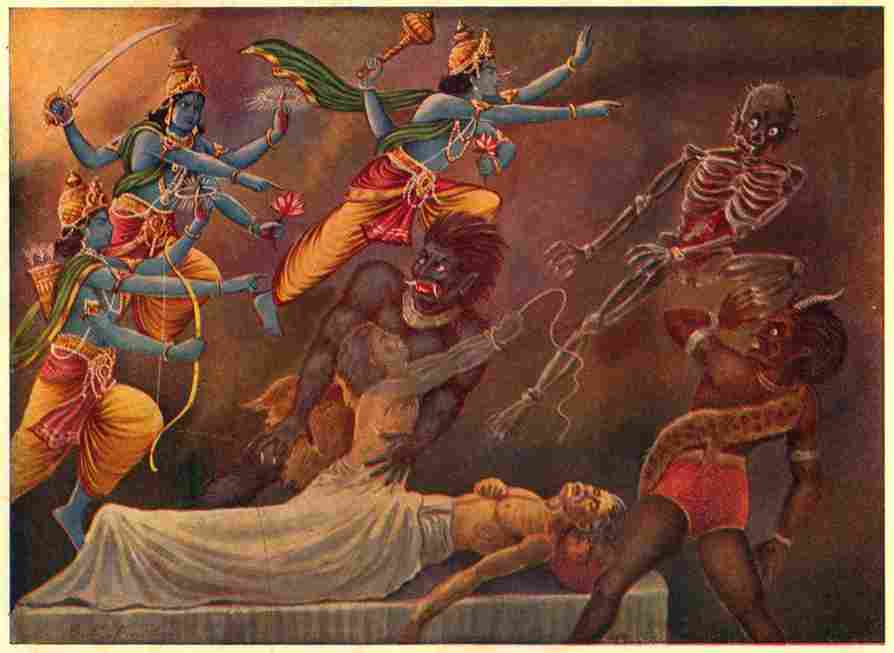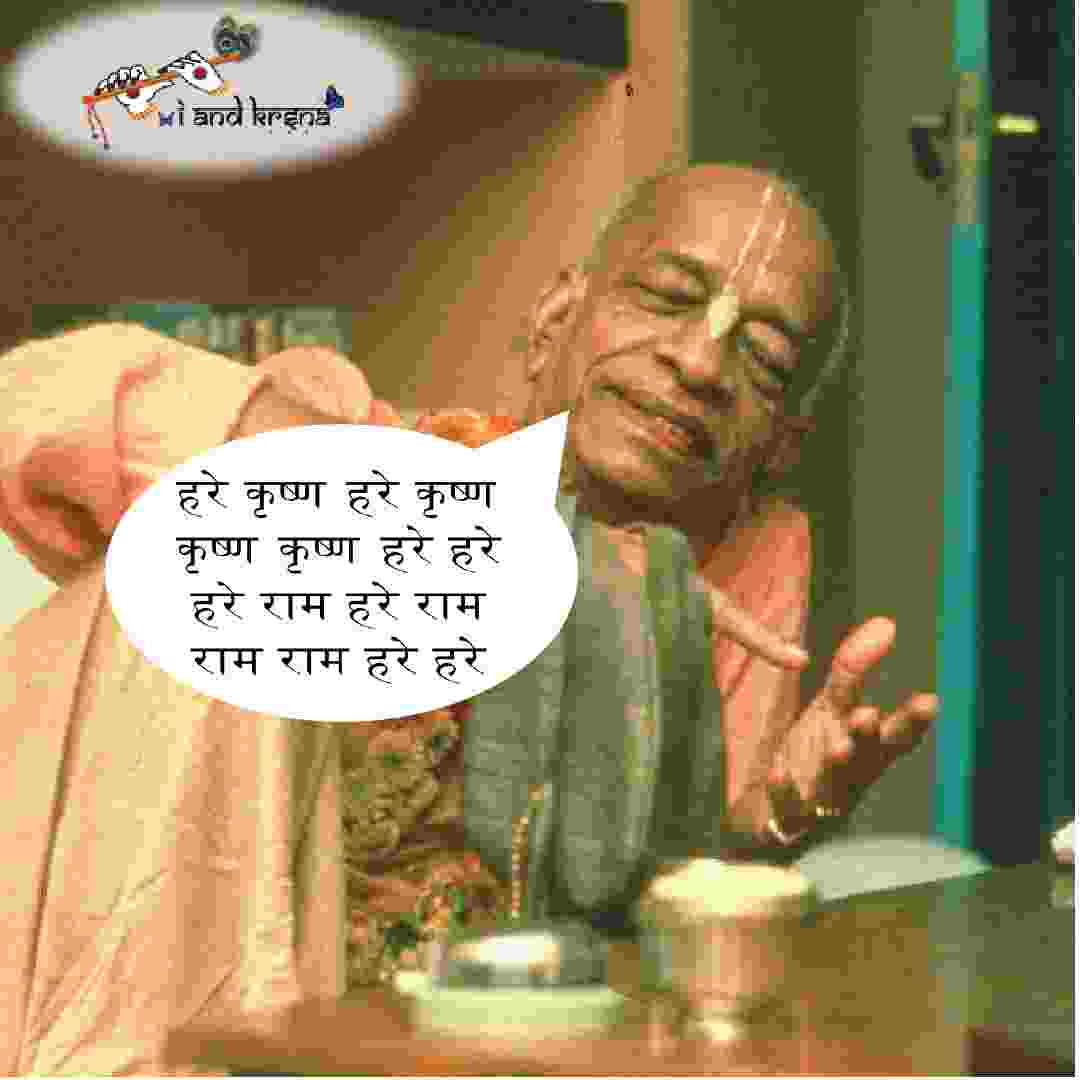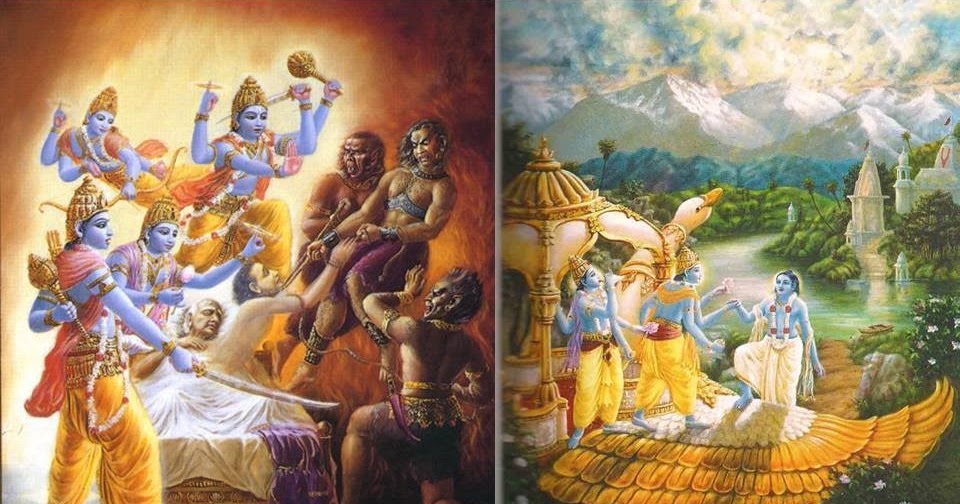“Sri Krishna, the Personality of Godhead, who is the Paramatma [Supersoul] in everyone’s heart and the benefactor of the truthful devotee, cleanses desire for material enjoyment from the heart of the devotee who relishes His messages, which are in themselves virtuous when properly heard and chanted.” It is the special mercy of the Supreme Lord that as soon as He knows that one is glorifying His name, fame and attributes, He personally helps cleanse the dirt from one’s heart. Therefore simply by such glorification one not only becomes purified, but also achieves the results of pious activities (punya-sravana-kirtana). Punya-sravana-kirtana refers to the process of devotional service. Even if one does not understand the meaning of the Lord’s name, pastimes or attributes, one is purified simply by hearing or chanting of them. Such purification is called sattva-bhavana.
At the time of death, this Ajamila helplessly and very loudly chanted the holy name of the Lord, it was due to Ajamila’s glorifying the holy name of the Supreme Lord that he was not punishable. The Vishnudutas explained this as follows: “Simply by once chanting the holy name of Narayana, this brahmana has become free from the reactions of sinful life. Indeed, he has been freed not only from the sins of this life, but from the sins of many, many thousands of other lives. He has already undergone true atonement for all his sinful actions. If one atones according to the directions of the sastras, one does not actually become free from sinful reactions, but if one chants the holy name of the Lord, even a glimpse of such chanting can immediately free one from all sins. Chanting the glories of the Lord’s holy name awakens all good fortune.
In Bhagavad-gita (8.5) it is stated:
anta-kale ca mam eva smaran muktva kalevaram
yah prayati sa mad-bhavam yati nasty atra samsayah
If one remembers Krishna, Narayana, at the time of death, one is certainly eligible to return immediately home, back to Godhead.”
Source: A.C. Bhaktivedanta Swami Prabhupada (2014 edition), “Srimad Bhagavatam”, Sixth Canto, Chapter 02 – Text 12, 13, Introduction





















Leave A Comment